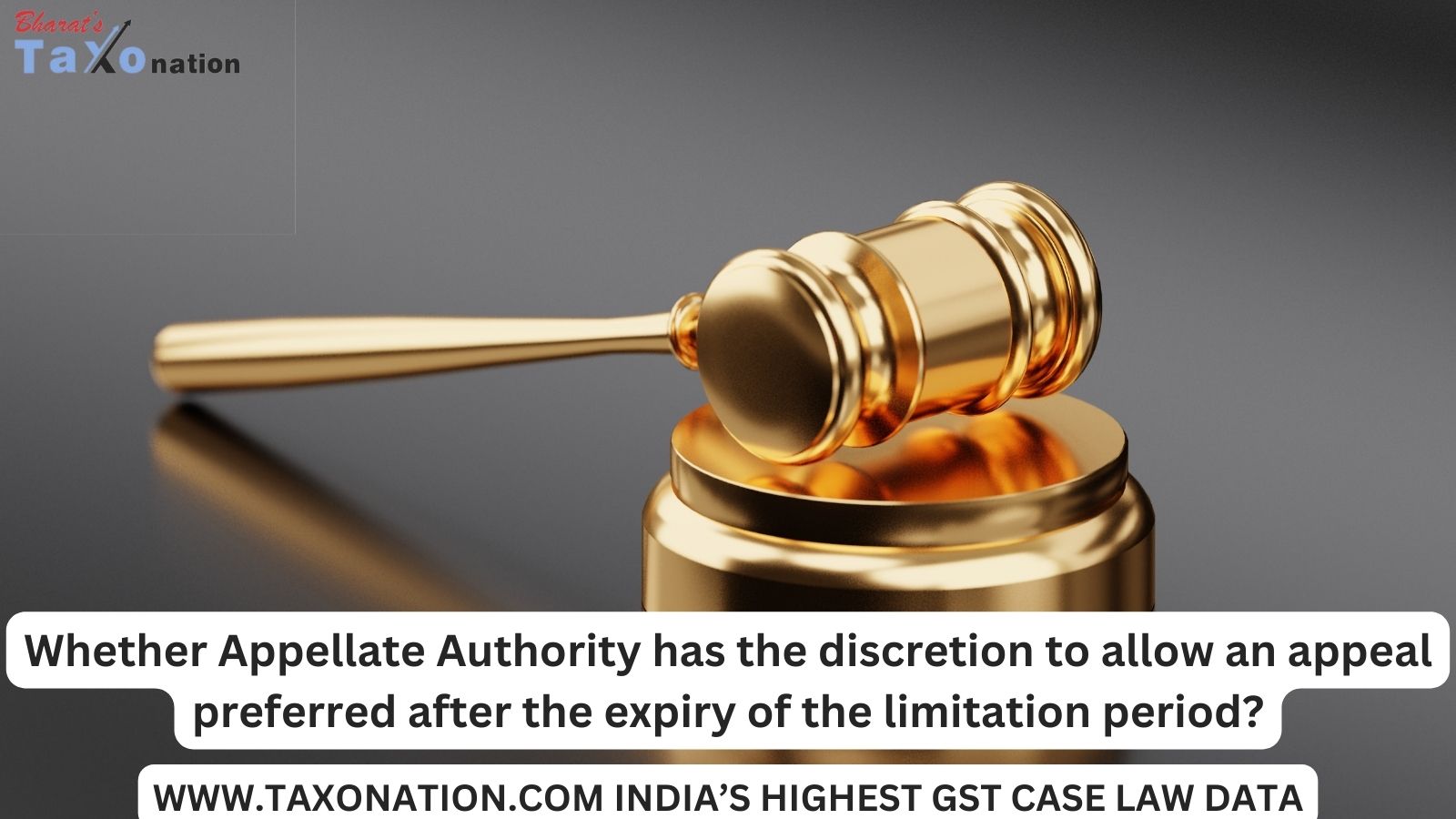
Yes, the Honorable Calcutta High Court in the case of Arvind Gupta v. Assistant Commissioner of Revenue State Taxes [2024 TAXONATION 110 (CALCUTTA)] held that the Appellate Authority has the discretion to allow an appeal to be presented within one month after expiry of the period of limitation stipulated from the date of communication of the order upon sufficient cause being shown as per Section 107 (4) of the Central Goods and Services Tax Act, 2017.
The Honorable Calcutta High Court relied on the Honorable Division Bench in the matter of S.K. Chakraborty v. Union of India & Ors. (MAT 82 of 2022) where the Bench held that the provisions of Section 5 of the Limitation Act, 1963 have not been expressly or impliedly excluded by Section 107 of the CGST Act. Therefore, Section 5 of the Limitation Act,1963 stands attracted.
The Honorable Court observed that it was well within the power of the Respondent to consider the prayer of the Petitioner for condonation of delay. The Impugned Order passed by the Respondent that there is no scope to condone the delay beyond four months suffers from infirmity and the delay was evident from the annexure to FORM GST APL-01 and the Petitioner was prevented by sufficient cause for not preferring the appeal within the statutory period.
The Honorable Court opined that the Respondent failed to exercise its jurisdiction. The delay in presenting the appeal before the Respondent was condoned. The Respondent was directed to consider the appeal on merit and decide the same in accordance with law upon giving an opportunity of hearing to the Petitioner.
Author’s Comments
If the appeal is filed after the period of condonation permitted in section 107(4) (3+1 months), the Appellate authority does not have statutory authority to condone the delay, not even if the reasons are ample and deserve to be entertained. The appeal must be dismissed for being fatally belated because the Legislature has allowed Appellate authority this much authority and not more.
The Honorable Supreme Court has decided in Singh Enterprises v. CCE 2008 (221) ELT 163 that where the period of limitation is specifically provided in the statute, admitting appeals albeit for ‘sufficient cause’ would render statutory provisions impossible. And Appellate Authority thus being the denuded of authority to condone (due to lapse of maximum time permitted) is barred from examining the cause and condone the delays even for a “good and sufficient” reason.
The Honorable Allahabad High Court in the case of M/s. Yadav Steels v. Additional Commissioner and Anr. [2024 TAXONATION 341 (ALLAHABAD)] and in the case of M/s. Abhishek Trading Corporation v. Commissioner (Appeals) and Anr. [2024 TAXONATION 380 (ALLAHABAD)] has decided that the Central Goods and Services Tax Act, 2017 is a special statute and a self-contained code in itself and Section 5 of the Limitation Act is not applicable to give power to First Appellate authority to condone the delay beyond statutory time limit allowed.
Topic-Arvind Gupta v. Assistant Commissioner of Revenue State Taxes
Citation-2024 TAXONATION 110 (CALCUTTA)
CA Ritesh Arora
CLICK HERE TO READ FULL CASE LAW OR SUBSCRIBE GST E-LIBRARY (INDIA'S HIGHEST GST CASELAW DATA)
Comment: